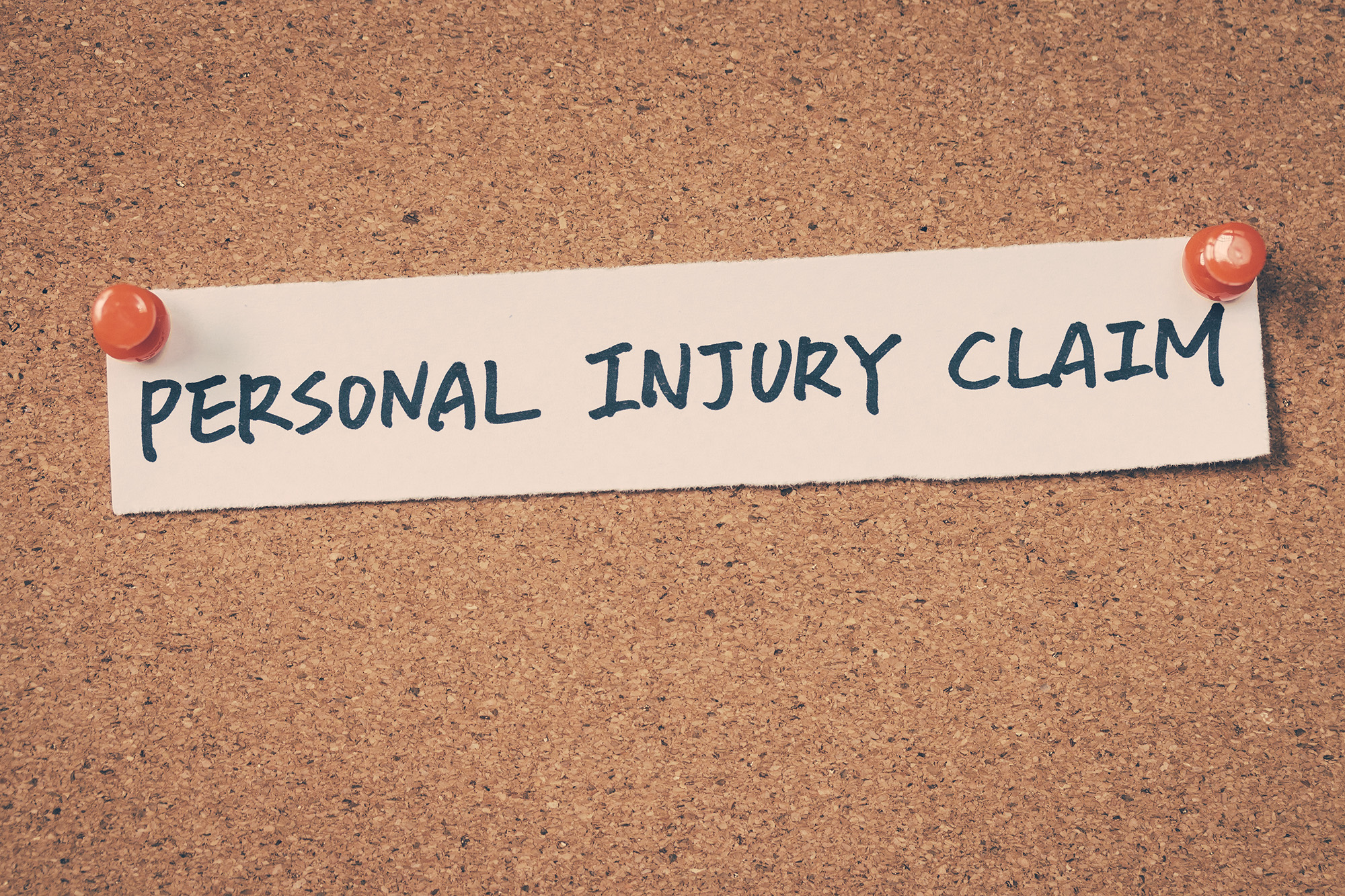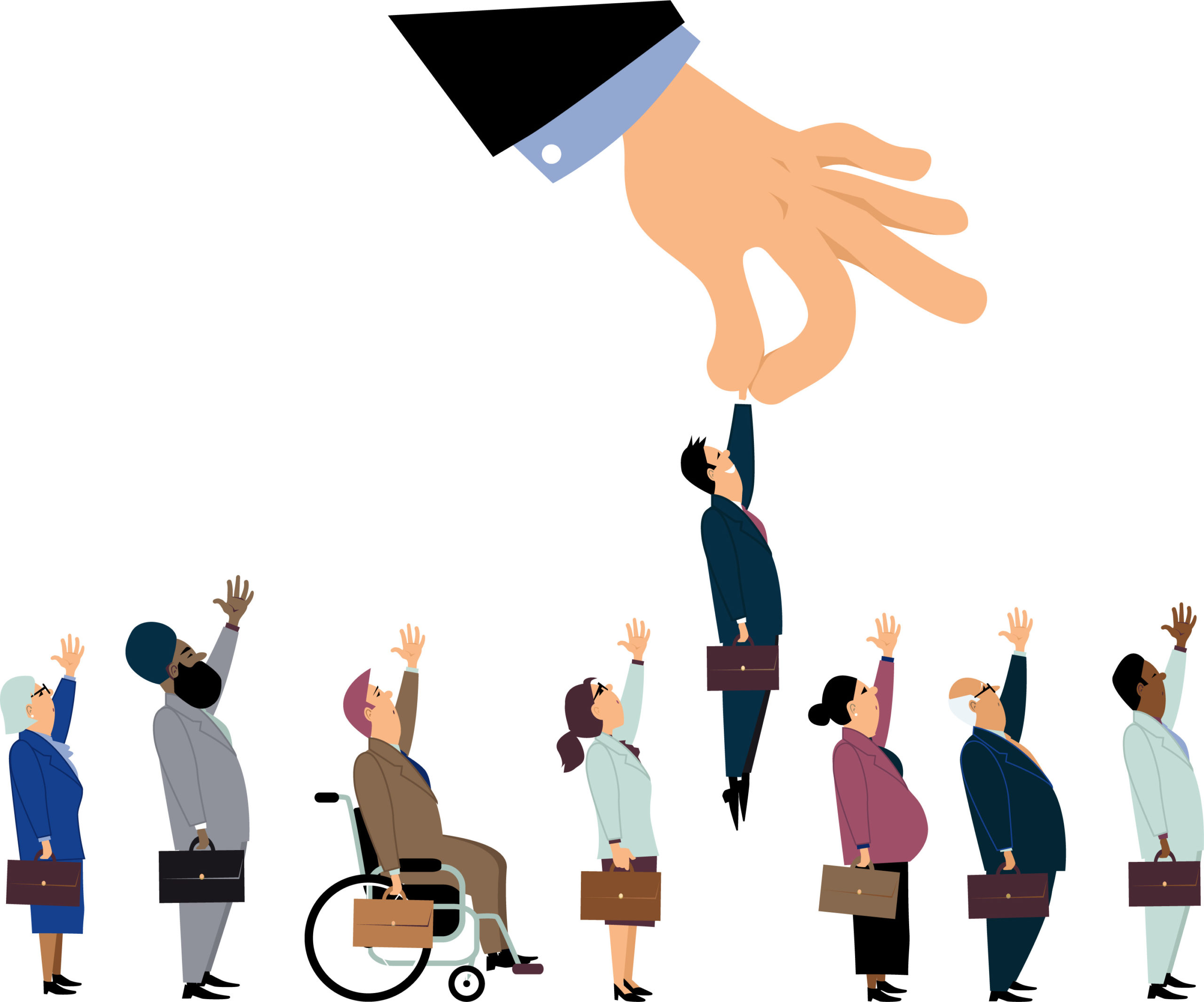When someone is injured due to the negligence of someone else, they may have grounds for a personal injury claim. Fighting for compensation after an accident can be complicated. It is important to know the steps you need to take as well as pitfalls to avoid. One of the best things you can do for yourself and your case is to hire a personal injury lawyer. They have a good understanding of personal injury laws and know how to navigate the legal process to help you to act in your best interests.
What is a Personal Injury Claim?
In civil litigation, personal injury claims fall under tort law and are meant to make the victim whole again by compensating them for their losses. This includes financial losses known as economic damages and intangible losses known as non-economic damages. Some common damages claimed in personal injury cases are:
- Medical Expenses
- Pain and Suffering
- Loss of Income
- Reduced Quality of Life
- Property Damage
What You Must Prove to Win Your Personal Injury Claim
In order for a personal injury claim to be valid, a plaintiff must prove the 4 elements of negligence below to ensure they can assign liability to a negligent party [1]. The more they can prove each of these elements, the better their chances are of winning their personal injury claim. If the injured party cannot sufficiently prove all of the elements below, they could lose their case.
Duty of Care
As a society, there are many different situations where one person has a responsibility to act in a way that ensures the safety of someone else. One of the most common examples is drivers. When you are operating a motor vehicle, you have a duty of care to everyone around you to obey traffic laws and the rules of the road. Doctors have a duty of care to their patients that is even spelled out in the Hippocratic Oath with the line “Do no harm”. Property owners have a duty of care to their guests, whether it is a personal residence or a public store. In a personal injury claim, you must be able to prove that the defendant owed you some kind of duty of care.
Breach of Duty
A breach of duty of care can be deliberate, reckless, or just careless. This is where the concept of negligence comes in. You must be able to prove that the defendant did not uphold their responsibility to ensure your safety. It often comes down to what is reasonable. Sometimes, the breach is obvious, such as driving under the influence or letting an aggressive dog wander around off leash. But sometimes, it can be a bit harder to determine. Sometimes, an accident is just an accident, and the question becomes whether the defendant took every precaution and action that any reasonable person would have.
Injuries or Damages
In order to claim compensation, there must be something to compensate. You must be able to prove that you suffered injuries and that those injuries resulted in real losses. In some cases, this can also include property damage as well. Economic damages are easy to prove by collecting bills and receipts from repairs and medical expenses as well as paystubs to show lost wages. Non-economic damages such as pain and suffering are a bit harder and may require documentation from a mental healthcare professional or witness testimony from people in your life.
Causation
Finally, you must be able to prove that the breach of duty was the cause of the accident, and that the accident was the cause of the injuries. If the defendant was negligent in their duty to you, but the accident was caused by you or someone else, then the defendant may not be liable. If you were already injured before the accident occurred, then you may not be able to claim those injuries. Sometimes, pre-existing injuries are seriously exacerbated by an accident which can result in additional damage, but proving this can be complicated.
Tips on How to Win Your Personal Injury Claim
Each personal injury claim is unique and requires its own approach. However, there are some things that you should keep in mind for any claim. One of the most important things is how much you can prove. It is also wise to remember that the way you go about things has a major impact as well.
Understand How Personal Injury Claims Work
The legal process can be overwhelming, especially if you are unfamiliar with it. One of the best ways to navigate it is by learning the basics. For a personal injury claim, a plaintiff needs to prove the 4 elements of negligence:
- Duty of Care
- Breach of Duty
- Causation
- Damages
This is the outline for any personal injury case. If you are unsure whether something would be useful to your claim, ask yourself if it works towards proving one or more of these elements.
Seek Immediate and Thorough Medical Treatment
Some people put off going to the doctor after an accident because they think it’s not necessary. However, it is in your best interest to get checked out immediately for several reasons. The first is that there are serious injuries that might not be noticeable at first due to shock and adrenaline or because they are internal. Things like internal bleeding, brain injuries, and hairline fractures may not have any obvious or severe symptoms at first but can worsen dangerously over time if untreated. Another reason is that you want documentation of your injuries as soon as possible. If you wait too long to seek medical care, it becomes harder to prove that the injuries were caused by the accident. It also gives you a clearer understanding of the extent of your injuries to plan further treatment.
Gather Valuable Evidence
It is always good to have as much hard evidence as possible. Anything that documents and proves the four elements of a personal injury claim can be helpful. There are some things that can only be collected at the time of the accident, so it is important to do so if you are able. Depending on the type of claim, helpful evidence can include but is not limited to:
Photos
- The scene of the accident
- Any hazards that caused the accident
- Bodily injuries
- Property damage
- Other party’s license and insurance card
Video
- Security cameras
- Dashcams
- ATM cameras
- Traffic cams
- Personal recordings
Documents
- Incident reports
- Police reports
- Medical records
- Medical bills
- Paystubs or bank statements
Testimony
- Witness statements
- Expert analysis
- Personal account of pain and suffering
- Spousal statement of loss of consortium
- Statement from the other party
Avoid Social Media
In this day and age, many people are accustomed to sharing their life online. After being injured in an accident, it may be tempting to inform and update your friends and family online. Unfortunately, the other party can use anything you post against you. A comment reassuring a loved one that they don’t need to worry about you can be entered as evidence that your injuries were not as severe as you claimed. Even if your account is private, there are still ways for the defense to gain access to it.
Keep Information Related to Your Claim Private
It is generally best not to discuss any ongoing legal matters with anyone other than your attorney and their team. They will let you know the details that can be shared and who they can be shared with. They can also advise you on what to say when declining to give information. Even if something is not necessarily secret, it is too easy for things to be twisted or misinterpreted in a way that could hurt your case in the long run.
Do Not Talk to Insurance Adjusters
A common tactic used by insurance companies is to contact the injured party immediately to get a statement. This is a way to get you to say something that can be used to shift liability onto you or downplay your injuries. They might also make an immediate settlement offer and will try to pressure you into taking it. This offer is always much lower than you deserve and is a way to trick you into giving up your right to claim anything later on. You do not have to talk to the other party’s insurance, especially if you have or are planning to hire an attorney. If the other party’s insurance company calls, do not answer. If you answer, tell them all communication and information is to go through your lawyer.
Be Honest and Do Not to Exaggerate Your Claim
As important as it is to not downplay your injuries, it is also important not to overexaggerate them either. When giving the facts of the accident and a description of your injuries to your attorney, be as clear and honest as possible. You may be tempted to omit details that make you look bad, but your lawyer needs to know those things just as much as everything else. Misrepresenting the situation will only harm your case in the long run.
Be Patient and Trust the Process
Most people do not realize how long and drawn-out personal injury claims can be. Treatments can take months and then there could be several weeks before all of the records are sent in. Collecting police reports, security footage, and witness statements all takes time. There is also no way to know how long the negotiations will take. Even after a settlement is reached, it takes time for the money to be retrieved and distributed. It is important to be patient and remember that your attorney and their team are doing everything they can and will update you when there are developments.
Hire an Experienced Personal Injury Lawyer
One of the best ways to navigate the legal process is with the help of someone who works inside it. Having a personal injury attorney is worth it and gives you many advantages. They can explain your options, what needs to be done, and go over the particulars of your case. They can walk you through the entire process and handle the insurance companies so you can focus on recovery. Studies have shown that having a personal injury attorney significantly increases your chances of a favorable outcome and higher compensation.
Be Transparent with Your Personal Injury Lawyer
Your lawyer is there to help you. In order for them to do that, you need to tell them everything. Information given to your personal injury attorney is confidential and protected. Keeping secrets from your lawyer or lying to them is only going to hurt you and your case later on.
Make a Good Impression
Going through the legal process while trying to recover from an injury is a stressful and frustrating experience. It can be easy for your emotions to get the better of you. However, it is important that you do not say or do anything that will make you look bad in front of a judge or jury. A personal injury claim should only be about the facts of the accident and injuries, but unfortunately, it is also about perception. Staying calm and collected strengthens your image and makes it harder for the defense to make you look bad.
Types of Personal Injury Claims
Personal injury is a broad term that encompasses many different kinds of situations. The subcategories are often defined by how the incident occurred, or the type of injury sustained, or the relationship between the plaintiff and the defendant. Some well-known types of personal injury claims include:
- Animal Attacks / Dog Bites
- Construction Accidents
- Medical Malpractice
- Car Accidents
- Premise Liability / Slip and Fall
- Product Liability
- Workplace Accidents
- Wrongful Death
What is the Chance of Winning a Personal Injury Claim?
Every personal injury case is different. There are various factors that contribute to the strength of the case and the odds of the outcome. Generally, it comes down to evidence and how much you can prove the elements of the case. Different types of cases have their own opportunities and challenges for different types of evidence.
- Only 10-20% of weak medical malpractice trials were won by the plaintiff while in stronger cases that rate increased to 50% [2].
- 52% of premise liability trials were won by the plaintiff [3].
- 60% of motor vehicle accident trials were won by the plaintiff [4].
Sometimes Settlements Can Be an Acceptable Resolution to Your Personal Injury Claim
When most people think about personal injury claims, they think about taking a lawsuit to court. However, the majority of these claims are settled outside of the court room through negotiation. Litigation is an expensive, risky, and time-consuming process that is generally only entered into when necessary. Fortunately, this means that the insurance companies are often more willing to compromise in order to avoid it. Your personal injury attorney can advise you on whether accepting a settlement is in your best interest, or if it would be worth it to take the matter to court.
Going to Trial Is Another Option If You Don’t Receive a Good Settlement
Unfortunately, there are times when the defendant is unwilling to negotiate in good faith or other details of the situation make it impossible to reach a fair settlement out of court. At this point, the attorney will weigh the risks and benefits of taking the case to trial and the likelihood of different possible outcomes. It is extremely important to understand that if a personal injury claim goes to trial, and the plaintiff loses their case, there could be no damages awarded to them. This makes going to trial exceedingly rare, but it may be the only chance at getting an adequate reward to cover damages if a settlement can’t be reached. According to data analyzed in 2005 from the DOJ’s Bureau of Justice Statistics (BJT), out of roughly 16 thousand sampled tort cases heard by the different jurisdictions who submitted data, only about 4 percent of those cases were awarded by a trial verdict [5]. This data is also supported by another study from 2000 that indicated that out of over 41 thousand sampled cases heard by US district courts, only 3% were determined by trial outcomes [6]. These rates of going to trial indicate that trial outcomes are not typically in the interests of both parties due to the increase in cost, time, and resources that going to trial usually involves.
Why Winning a Personal Injury Claim Isn’t Always Guaranteed
There are many reasons why a personal injury claim may not have a favorable outcome for the plaintiff. Some of the more common pitfalls of an otherwise good case can include:
- A lack of hard evidence
- Shared liability for the accident
- Conflicting statements and testimonies
- No witnesses to the accident
- Defendant was not the one liable
- Delays in discovering injuries
- Difficulty calculating non-economic damages
Other Important Considerations During a Personal Injury Lawsuit
When navigating the complex legal landscape of personal injury cases, it is important to remember several considerations that can impact your claim.
Don’t Forget Future Damages
When calculating fair compensation, it is important to think about if and how the accident will impact you going forward and what expenses or losses can be expected.
- Are any of the injuries permanent? Will you need additional treatment in the future?
- Are there any long term or permanent complications of the injury such as chronic migraines or joint weakness?
- Has your ability to work been diminished?
- Are you suffering from post-traumatic stress or any other long term emotional distress?
Don’t Wait to File Your Claim
Many people make the mistake of waiting too long because they might think their injuries aren’t that bad, or the injuries are so bad that they want to wait until they are better, or because the entire process seems too daunting and overwhelming. Unfortunately, this can not only hurt your case, but can even prevent you from being able to file one at all if you go past the personal injury statute of limitations. It is usually in your best interest to speak to a lawyer as soon as possible to see what your options are and how to get started. This will give them as much time to build a robust case and collect as much evidence and testimonials as possible when the incident is still fresh in the minds of any potential witnesses.
Your Character May Be Used Against You
The defense will constantly be trying to discredit your claims. One of the ways they may try to do this is by trying to discredit you personally. They might pick apart your social life, your professional life, your reputation, and even the way you look and speak. They will use whatever they can and twist things to make you look worse. It is important to be careful about what you say and do in person or online and tell your attorney anything that could be used against you.
How a Personal Injury Lawyer Can Help You Win Your Personal Injury Claim
There are many different ways that having a personal injury attorney can benefit you and your case:
- Opening the insurance claims
- Helping you report the accident to the DMV
- Getting police reports
- Gathering and compiling evidence
- Advising you on your rights and options
- Finding you doctors who work on a lien basis
- Collecting medical records and bills
- Drafting, filing, and serving documents
- Calculating the best fair compensation
- Negotiating with insurance companies
- Fighting for you in court if necessary
All of these steps need to be completed to build a strong personal injury claim. However, these tasks may be difficult for someone dealing with injuries. An expert personal injury lawyer has gone through this list several times and likely has resources already available to them to get these items done as efficiently as possible.
Contact Mesriani Law Group if You Have Sustained a Personal Injury
The legal process can be intimidating and overwhelming. So many people miss out on the compensation they deserve because they don’t know where to start and think they have to do it alone. Our firm is here to help you through every step of the way, guiding you, keeping you informed, and fighting for your best interests. We know how to take care of our clients and win cases. Our office is in Santa Monica and we provide legal representation to all of Los Angeles and Southern California. If you have been injured in an accident, call Mesriani Law Group today for a free consultation.
Sources
[1] https://www.law.cornell.edu/wex/negligence [2] https://www.ncbi.nlm.nih.gov/pmc/articles/PMC2628515/ [3] [4] https://bjs.ojp.gov/content/pub/ascii/TCILC.TXT [5] https://bjs.ojp.gov/content/pub/pdf/tbjtsc05.pdf [6] https://www.justia.com/injury/docs/us-tort-liability-primer/settlement-versus-trial/
How to Win a Personal Injury Claim FAQs
How do I get the most out of my claim?
The point of compensation in personal injury claims is to make the victim whole again. This goes beyond medical bills and lost wages. To be sure that you are properly compensated, it helps to examine every aspect of your life and your health to find all of the places where the accident and your injuries have had a negative impact. Document everything and get as much hard evidence as you can. It is also important to remember to factor in estimated future damage as well.
How do I prepare for a personal injury claim?
The most important thing is evidence. When an accident occurs, if you are able to, gather as much information and documentation as possible. Take photos and videos if you can and get the contact information of anyone who saw what happened. If the responsible party is a company or government entity, try to get an incident report. If they are a private citizen, get their name and information including insurance provider and policy number. If you are in a motor vehicle accident and the police do not come and make a report, you can file one online afterwards.
How long do most personal injury claims take?
There are too many factors and variables to estimate how long any particular claim will take. The process could take months, or it might be years. The complexity of the incident, the severity of your injuries, the limits of the insurance coverage, and the willingness of the insurance company to act fairly are all things that can contribute to the amount of time it takes to settle. Even after a settlement is reached or an award is granted, it still takes time to receive and distribute the funds.
What makes a personal injury claim?
There are four things that define a personal injury claim:
1. The defendant owed the plaintiff a duty of care
2. The defendant breached that duty somehow
3. The plaintiff incurred real damages and loss due to the accident
4. The breach of duty caused the accident which caused the plaintiff’s injuries








